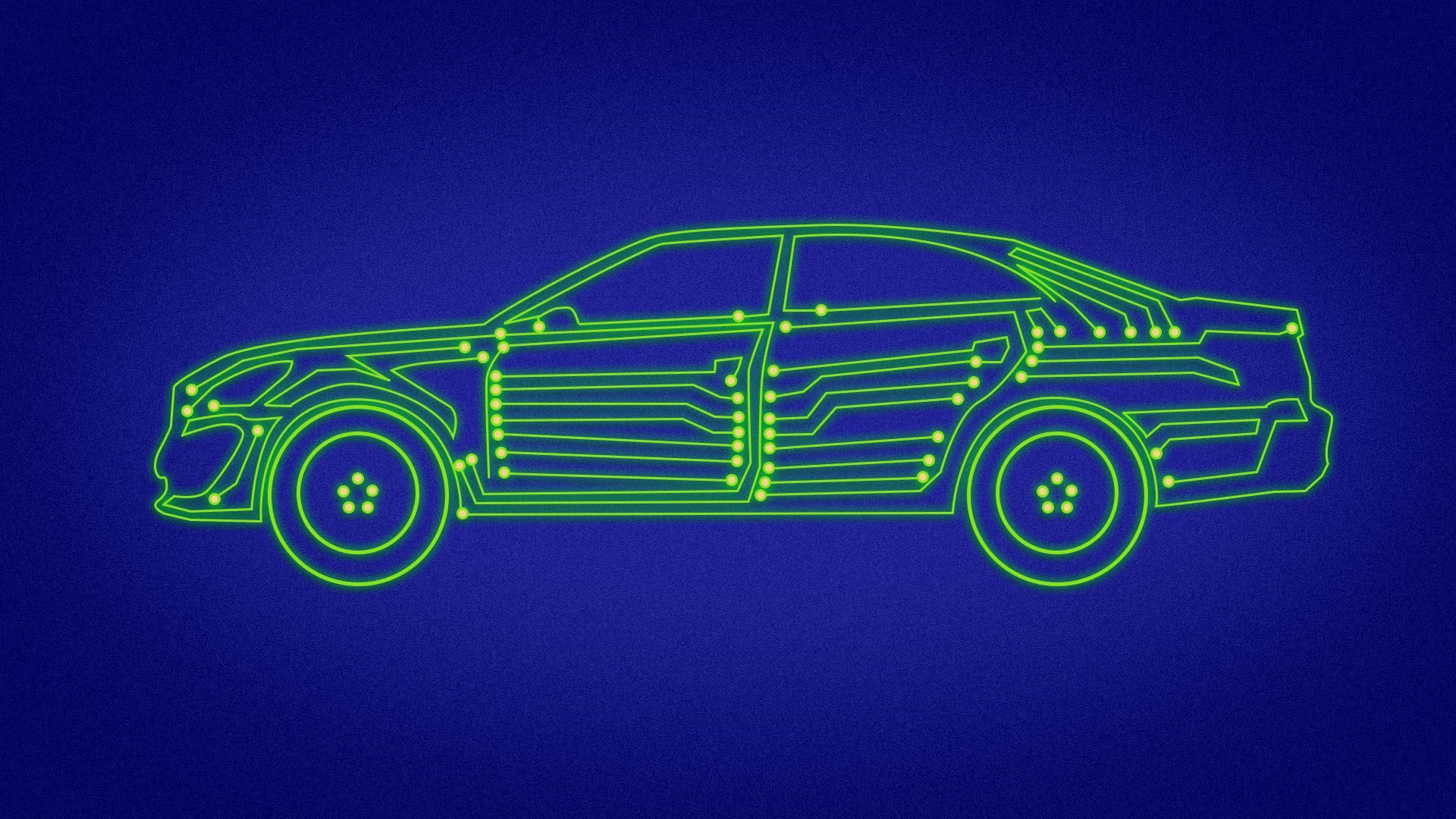
With more than 100 million lines of code in the modern car, advanced software features are testing the limits of the computer hardware under the hood. And it will only get worse: Electric, connected and automated cars will devour even more computing power in the future.
Why it matters: Automakers face an urgent need to redesign their vehicles' electronic architecture — essentially their brain and central nervous system — to handle the onslaught of advanced features that will one day allow cars to talk to each other and drive themselves.
The big picture: The software-driven shift will likely have massive implications for both the automotive and semiconductor industries.
- The market for automotive computer chips is expected to grow from about $40 billion today, per IHS Markit, to as much as $200 billion by 2040, according to KPMG.
- Semiconductor companies are salivating over the growth opportunity, but it will require automakers and their suppliers to collaborate with chipmakers to seamlessly integrate hardware and software.
The state of play: Today's cars typically have as many as 100 electronic control units (ECUs), each dedicated to a separate function — the engine, the window actuators or the lane-keeping system, for example.
- As cars have gotten more sophisticated, all those ECUs, along with the wiring and power supply they require, have turned into an unwieldy and expensive mess that's inefficient and overly complex.
- “The growth of software content and associated [computer] processing ... is really breaking the current vehicle architecture,” said Glen De Vos, chief technology officer at Aptiv, a major auto tech supplier.
- Worth noting: Tesla, which began in 2009 with a clean sheet, doesn't face the same constraint. Its cars were designed as rolling computers from the get-go, and they receive frequent over-the-air software updates. Earlier this year, Tesla introduced its own computer chip.
What's happening: Carmakers are replacing all those ECUs with centralized computing platforms linked to the cloud. But a challenge is keeping infotainment systems separate from those that control the car.
- Aptiv will unveil a new open-source smart vehicle architecture at CES in January. Multiple automakers are lined up to adopt it, including Hyundai, its new joint venture partner for automated vehicle technology.
- Elektrobit is developing centralized infrastructure for three carmakers, including Volkswagen, whose electric VW ID, which goes on sale in 2020, will be capable of over-the-air updates.
- Ford's upcoming Mustang Mach-E will be based on a new updatable EV architecture.
What to watch: If the automobile evolves in the way cellphones, PCs and data centers did, there could be a lopsided contest to grab revenue, with a handful of winners and many losers, warns KPMG in a new report.
- Chip manufacturer Intel was the winner in PCs, beating out the hardware manufacturers, for example.
- "With 'Intel Inside,' you see the power of silicon differentiating a commoditized environment," KPMG semiconductor expert Scott Jones tells Axios.
- The same thing is likely to happen in autos, he says, as software features — and not horsepower or vehicle styling — begin to define the driving experience.
The bottom line: In the future, cars will be valued not by what's under the hood, but by the software-enabled safety, convenience, infotainment and self-driving features they provide to consumers.
Go deeper:
"hardware" - Google News
December 06, 2019 at 11:52PM
https://ift.tt/350tGDm
Modern cars are testing the limits of their computer hardware - Axios
"hardware" - Google News
https://ift.tt/34VCCtX
Shoes Man Tutorial
Pos News Update
Meme Update
Korean Entertainment News
Japan News Update
No comments:
Post a Comment